Treatment of Testicular Cancer
Best hospitals and doctors for testicular cancer treatment abroad
Leading hospitals
Cost for treatment












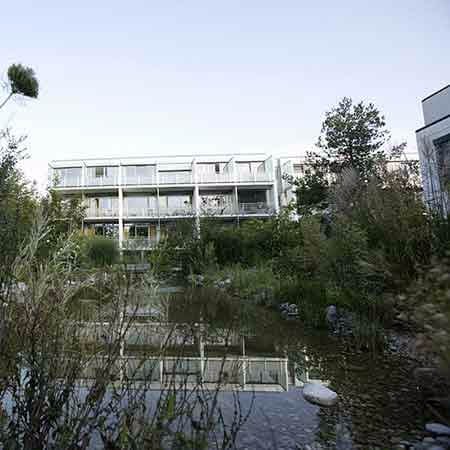
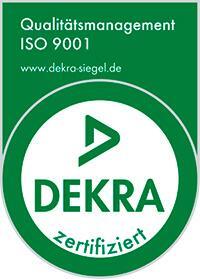


















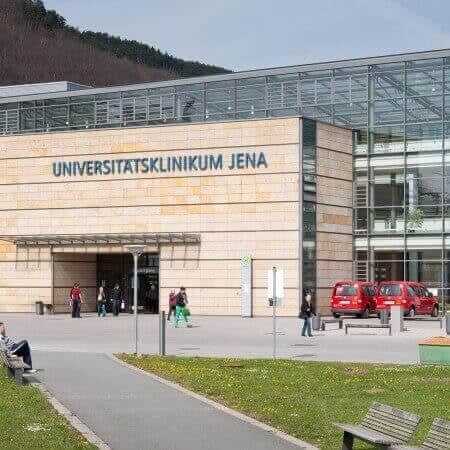









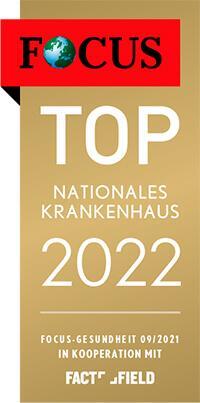





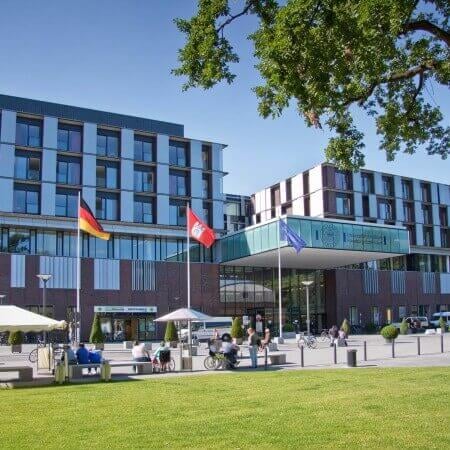



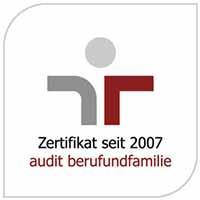

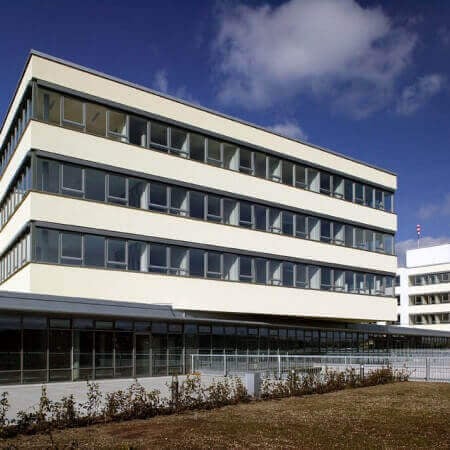











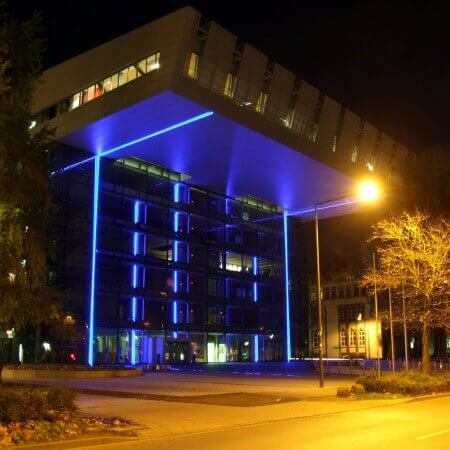











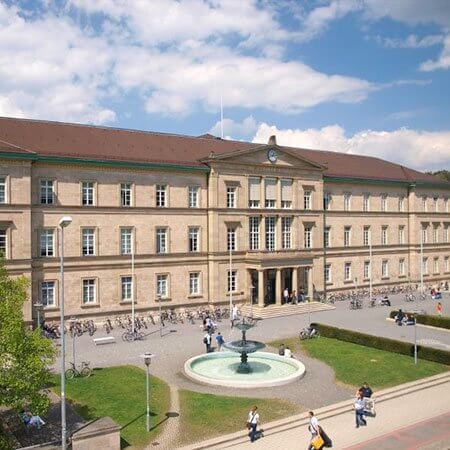





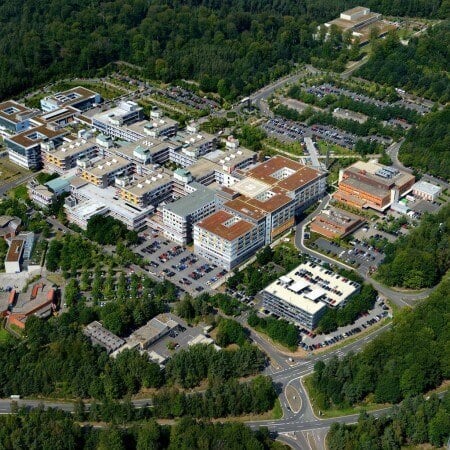


Testicular tumors are characterized by rapid growth. In just one month, such a neoplasm can double its size. Despite the extremely aggressive course, treatment is successful in the vast majority of testicular cancer cases. However, the use of modern drugs and methods allows specialists to achieve good results in the treatment for testicular cancer.
Content
- What are the symptoms of testicular cancer?
- Tactics for testicular cancer treatment
- Chemotherapy for testicular cancer
- Complications of treatment
- Fertility after treatments
- Recovery after the treatment
- What is the difficulty in treating testicular cancer?
- The cost of treatment in Europe
- How to go for testicular cancer treatment in Europe?
What are the symptoms of testicular cancer?
In most cases, testicular cancer is detected at early stages, during the examination and palpation of the scrotum by the patient or doctor. The tumor is perceived as a dense, most often painless mass, which makes the testicle enlarged, sometimes – quite significantly.
An alerting symptom of testicular cancer is poor quality of sperm and resulting infertility. Usually, with cancer, the fertilizing ability of sperm is reduced, presumably due to the toxic effects of the tumor. Still, after removing the diseased testis, it is restored.
With the development of distant metastases, when the mass of tumor cells in the body increases tenfold, symptoms of tumor intoxication appear. These include fatigue, weight loss, depression, reduced appetite, and a constant rise in body temperature.
Secondary signs of cancer include:
- Hormonal disorders
- Disturbances in the thyroid function
- Increased hair growth on the back
- Swelling of the legs as a result of lymphatic and vena cava blockage by cancer cells
- Renal failure due to compression of the ureters by the tumor
- A sensation of a foreign body in the scrotum
- Constant pain in the lower abdomen and groin
If cancer develops in a teenager, there may be signs of disease progression, such as early adulthood: macrogenitosomia, frequent erections, hoarseness of voice.
To detect testicular cancer, it is necessary to see a specialist who will conduct a palpation of the scrotum and a general examination. Sometimes, even at this stage, it is possible to suspect the presence of a malignant neoplasm, which is most often characterized by high density and painlessness.
After the doctor's examination, the patient undergoes diagnostic studies:
- Ultrasound scan. Such a study allows detection of the tumor with the utmost precision.
- MRI and computed tomography. These studies have a similar aim, but they provide a physician with more information regarding internal organs, bones, etc.
- Osteo Scintigraphy. This technique allows physicians to clarify the presence of bone metastases.
- Detection of specific tumor markers in the blood.
- Morphological diagnostics of tumor fragments. Such examination is usually performed after removing the affected testis because there is a high risk of local metastasizing if the integrity of the uninvolved testis is damaged.
Based on the diagnostic results, the optimal therapy is chosen.
Tactics for testicular cancer treatment
According to statistical information, the tumor is often diagnosed early, unlike any other malignancy. And to cure the patient, removal of the diseased testis by the means of surgery is necessary.
Complete removal of the testis is the standard approach. Partial removal of a testicular area with a tumor must be considered in exceptional cases: when there is serious doubt about the malignant nature of the tumor and its size and location that technically allows it to be "excised" from the testis.
If after the preliminary examination there are doubts regarding the malignancy of the process, surgeons may decide to save the testicle by removing only the tumor. To do this, the tumor is excised and an immediate histological examination is performed. If atypical cells are detected, surgery is continued; if not, it is completed.
Surgery is carried out at all stages of the disease, including the advanced ones. In addition to the affected testis with appendages, regional lymph nodes are also removed. This reduces risk of recurrent cancer, as malignant cells may remain in the lymph nodes even after chemotherapy.
Treatment, however, isn’t limited to surgery. After surgery, it is necessary to take measures to prevent a recurrence. Even if metastases of the tumor are not detected during the examination before surgery, it is impossible to completely exclude the possibility that some malignant cells have left the testis and settled in the lymph nodes. Depending on the blood level of cancer markers (baseline and after surgery), the results of histological examination, as well as several other factors, doctors provide a patient with information about the risk of relapse.
Chemotherapy for testicular cancer
Chemotherapy is among the most efficient methods to fight testicular tumors. The duration and frequency of cycles depend on the type of cytostatics, the peculiarities of the disease, and the patient's health condition.
Since chemotherapy affects not only cancer cells, but also healthy ones, it interferes with the production of red blood cells in the bone marrow. As a consequence, the patient undergoing chemotherapy suffers from anemia, and the body's immunity weakens. Blood tests often detect low levels of white blood cells, red blood cells, and platelets, so the patient feels weak, and unable to resist infections.
To increase hemoglobin levels, it is necessary to enrich the diet with iron-containing foods such as meat, legumes, and herbs. In some cases, blood transfusions are needed. It is recommended to spend more time outdoors, get plenty of rest, and have eight hours of sleep a night.
To increase white blood cell count, a patient should avoid hypothermia and take vitamins. It is also better to visit public places less often to avoid infections.
Complications of treatment
If there are no general postoperative complications (bleeding, etc.), a patient can leave the hospital in about two days after testicular removal. Pain in the groin can last up to 7-10 days. Painkillers are used to relieve the pain, if necessary.
The side effects of chemotherapeutic agents include loss of appetite and weight, weakness, fatigue, decreased resistance to infections, bruising and bleedings. It is important to know that some supplements can significantly alleviate the condition during chemotherapy, while others can make it worse. Therefore, the use of any dietary supplements should be carried out under the supervision of an attending physician.
Since the disease develops at a young age, one of the most unwanted consequences of treatment of testicular cancer in men is reduced fertility. Sperm storage in special sperm banks, which are now available in European hospitals, make it possible to become a father in the future.
Fertility after treatments
Contrary to popular misconception, removing one testicle does not significantly impair the fertilizing ability of sperm and creates a hormonal imbalance. Half of the patients with testicular cancer had reduced sperm quality before surgery and experienced improvement after it.
Nevertheless, adjuvant treatments significantly reduced fertility. Radiation and chemotherapy worsen the quality of sperm, while surgery to remove lymph nodes leads to a violation of natural ejaculation. Therefore, before treatment, the patient can undergo freezing (cryopreservation) of the sperm.
Another aspect that can possibly influence fertility is psychological trauma after treatment. Even considering a favorable prognosis, coming back to normal lifestyle from a life-threatening health condition, the preservation of erection and libido, and the ability to have children, many men feel insecure after treatment. Luckily, the physical discomfort associated with testis removal can be easily solved by implanting a testicular prosthesis. The appearance of the scrotum after implantation is completely indistinguishable from the real organ. The very point of this is to pay attention to the psychological state as well as the physical one, and not be oblivious to it during the treatment process.
According to the results of studies conducted by healthcare professionals from specialized cancer centers, when a non-germ cell tumor is diagnosed at stage 1, a course of adjuvant chemotherapy can improve the 2-year relapse-free survival rate for patients with this diagnosis from 70% to 97%, and overall – up to 99%.
Recovery after the treatment
The duration of the recovery period depends on the nature and peculiarities of the treatment, the severity of side effects (if any), and the overall health of the man.
It is necessary to adhere to a healthy lifestyle, have plenty of rest, avoid heavy physical work for at least six weeks and avoid getting infections in the postoperative area.
If you follow the doctor's recommendations for diet, daily routine, and personal hygiene, the complete healing of postoperative stitches occurs in a few weeks. The side effects of radiotherapy disappear within 1-2 weeks, and chemotherapy – within a few days.
What is the difficulty in treating testicular cancer?
Testicular cancer is often considered a rare health condition. Therefore, its treatment must be carried out at a specialized medical institution with experience in treating this disease. It is very important to make the correct morphological diagnosis, which creates a background for choosing the correct treatments for testicular cancer.
With all of that said, testicular cancer is a treatable disease. However, mistakes in diagnosis making, wrong choice of a treatment regimen, and mistakes in treatment can cause even the death of a patient.
The most common mistakes in treatment are:
- Wrong interpretation of the morphologic diagnosis
- Removal of the tumor instead of the entire testicle
- Changing drug regimens or reducing doses due to lack of experience in managing side effects, which leads to tumor chemoresistance (resistance to treatments)
With testicular cancer, it is crucial to make a correct diagnosis. Different forms of testicular cancer are treated differently. Accordingly, if doctors initially make the wrong diagnosis for the health condition, all subsequent treatment will be ineffective. It is better if the diagnosis and therapeutic regimen are made by a tumor board, since there are specialists in drug therapy, surgery, specialists in chemotherapy and radiation therapy, and so on.
So first, there have to be sufficient diagnostic capabilities at the healthcare facility where testicular cancer is treated. And again, in clinics where this is rarely done, the diagnosticians might not be experienced enough to detect and distinguish one form of testicular cancer from another. Thus, choosing a specialized treatment facility is vital, with one option being European hospitals.
The cost of treatment in Europe
The cost of treatment in European hospitals is one of the main criteria that foreign patients consider before deciding to undergo treatment in Europe. Many web pages show the approximate cost of treatment in European hospitals, rather than the actual prices, which do not include accommodation or airfare for both the patient and an accompanying person.
The range of prices for treatment in Europe varies depending on the level and technical equipment of the hospital, the experience of the attending physician, certification of the medical facility, and other factors. Even though price is an important aspect, the quality of medical care in European hospitals remains a strong argument and source of motivation for residents of different countries.
However, to give you an idea of what you should financially expect, here are the approximate prices for procedures involved in testicular cancer treatment. The price for diagnostics for testicular cancer is around 854 EUR, the cost of treatment with surgery starts at 4,299 EUR, the cost of treatment with surgery and prosthesis is about 4,352 EUR. The price for general therapeutic rehabilitation after the completion of the main treatment course is around 570 EUR per day.
You can get more information about the cost of treatment and therapeutic options for your clinical case by filling in the request form on the Booking Health website.
How to go for testicular cancer treatment in Europe?
Booking Health will help you organize testicular cancer treatment in Europe without overpaying for services. We will help you pick a medical facility and provide you with reliable advice from our medical advisors.
Booking Health offers you dozens of treatment programs, the price of which includes all the necessary examinations and therapeutic interventions. We schedule and organize appointments so that no time is wasted while staying abroad. You don’t have to wait with Booking Health at all – we will set everything up as fast as it is possible.
If you want to find more information about testicular cancer treatment in Europe, you are at the right place! Our specialists will help you get answers to any questions on the choice of a clinic or a doctor. You will receive access to the most modern surgeries and medications. Each stage of your medical journey will be fully organized.
To get started, fill in the request form on the Booking Health website, and our medical advisor will contact you shortly.
Authors:
The article was edited by medical experts, board certified doctors Dr. Nadezhda Ivanisova and Dr. Vadim Zhiliuk. For the treatment of the conditions referred to in the article, you must consult a doctor; the information in the article is not intended for self-medication!
Sources: